Ginger Biscuit Recipe - A Christmas Favourite!

One of our favourite Christmas time traditions is this deliciously snappy ginger biscuit. These can be baked quickly throughout the month in the build-up to Christmas!
Give these a try, share them with family and friends, we trust your kids will love them too!
Ingredients
You will need:
200g rolled oats (grind them in your Nutribullet or blender)
60g raw honey
1 teaspoon grated fresh ginger
½ teaspoon ground ginger
10g Coconut palm
50g softened raw coconut oil
Sprinkle of ground nutmeg
Instructions:
- Preheat the oven at 180c and line a baking tray.
- Grind the rolled oats in your blender or Nutribullet.
- Mix all the ingredients together in a mixing bowl.
- Roll the mixture into small balls and then flatten them onto the tray.
- Bake these for 20 min, turning them over after 10 minutes, until they are golden brown.
P.S. Ginger is great for balancing blood sugar and is great for your gut as well.
Christmassy Mince Pie Recipe
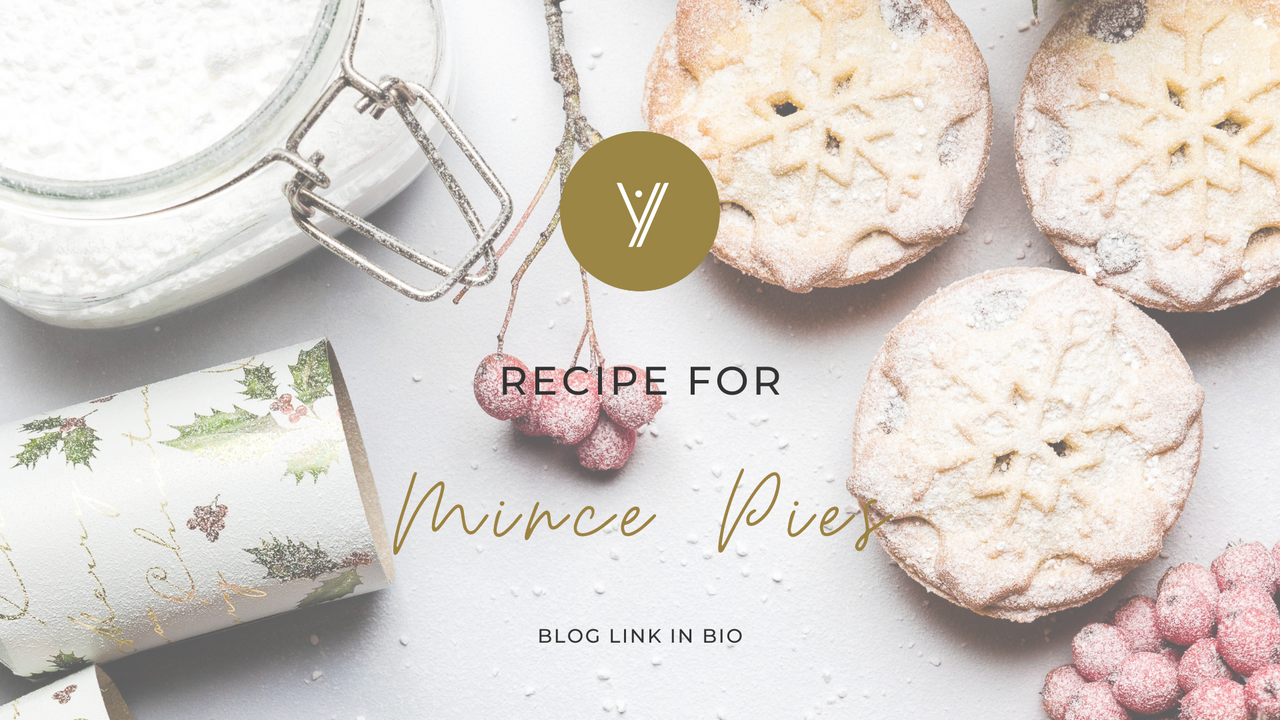
What is Christmas without some deliciously healthy mince pies? These delicious creations are a staple in our households each year. They are super fun to bake, if you have kids, get them baking with you in the holidays. Not only is it a great way to bond with them but it also gets them excited about learning new things in the kitchen.
(This recipe mades 6 -8 delicious mince pies)
Ingredients
You will need (Pastry):
35g raw coconut oil.
200g oat flour.
90ml maple syrup/
1 big pinch of vanilla powder, ground cinnamon or ginger (this is optional)
Add these into the pastry to give it the Christmas feel:
2 teaspoons of ground cinnamon.
1/2 teaspoon of ground cloves.
1/2 teaspoon of ground nutmeg.
1/4 teaspoon of freshly grated ginger, or ground ginger.
1 and a half tablespoons of maple syrup to brush and then coconut palm sugar to sprinkle.
Instructions For Making The Pastry:
- Melt your coconut oil, and then leave it to cool for a few minutes.
- Combine all your ingredients into a box mixin ...
Why Diets Don't Work
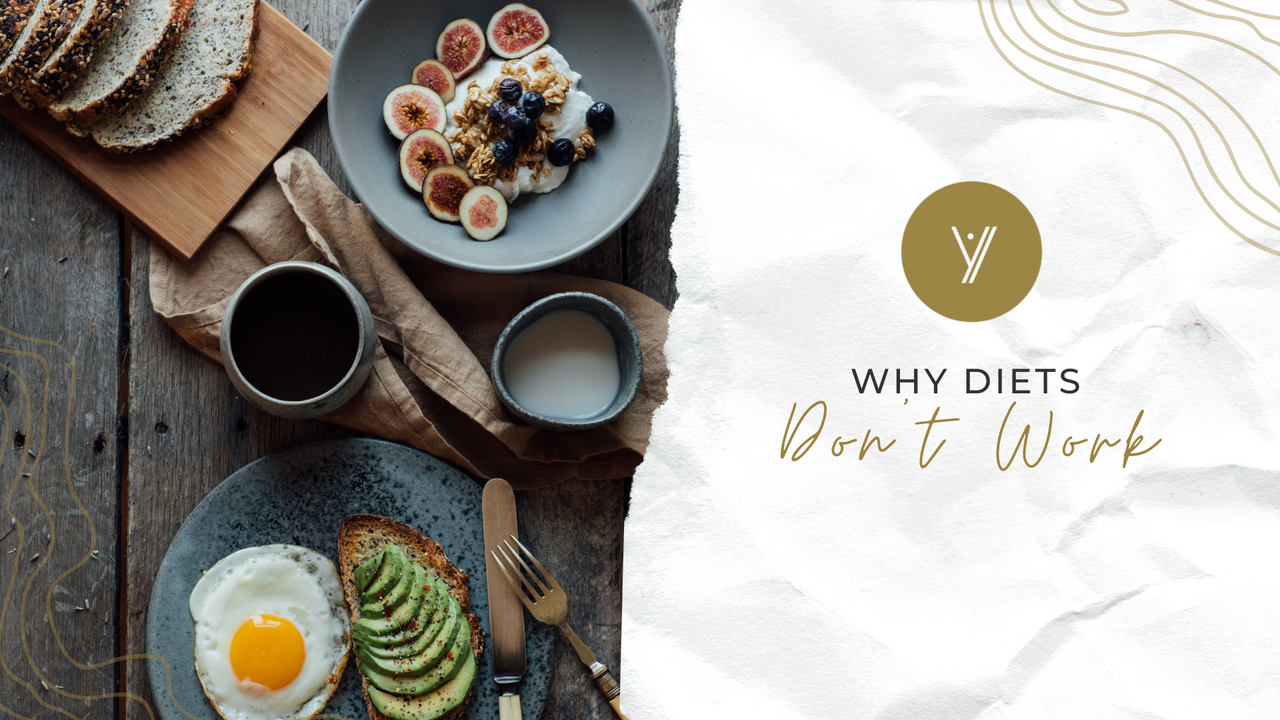
As we all know, the number one New Year’s resolution around the world is “I am going to lose weight.”
Before you choose the trending fad diet and spend a fortune on all the products you need for this coming new year, we thought we would write about why diets don’t work and give you a few tried and tested ideas of what will work.
The word diet means “the customary food and drink of a culture, a person, or an animal.”
However, for many of us, the word diet does not mean that. It means “a temporary and highly restrictive program of eating in order to lose weight.”
It’s this idea of temporary restrictive eating that we will be tackling today.
Research shows that 95% of people who lose weight by dieting will regain it within 1-5 years, and there are a few reasons for this.
- Many of us think that diets are a temporary plan, however, when we have “completed” our diet, we simply boomerang back to unhealthy eating patterns.
- Deprivation of restrictive diets may lead to a diet-overe ...
Building Blocks of Nutrition: Fibre
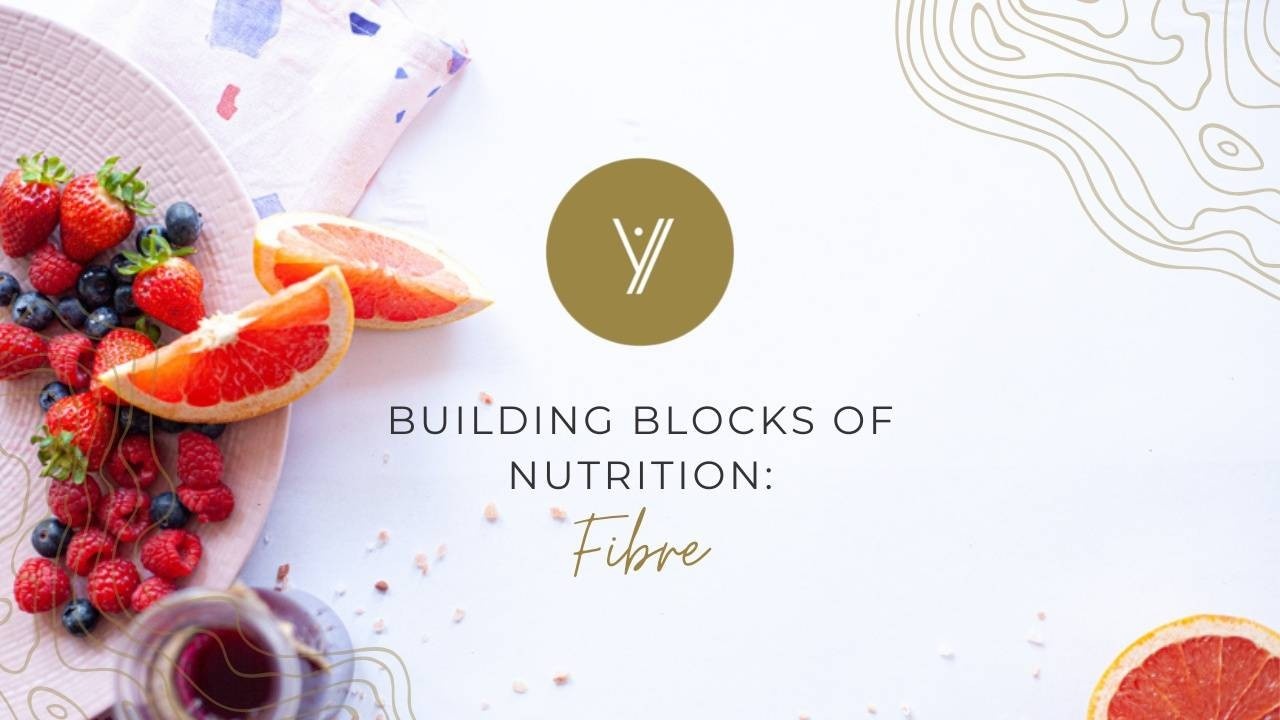
Dietary fibre includes the parts of plant foods your body can’t digest or absorb. Unlike other food components, such as fats, proteins or carbohydrates — which your body breaks down and absorbs — fibre is not digested by your body. Instead, it passes relatively intact through your stomach, small intestine, colon and out of your body. Taking with it toxins, waste, fat, excess hormones and cholesterol particles out of the gut.
Some functions of Fibre:
- Needed for efficient digestion
- Helps maintain bowel health
- Keeps your heart healthy
- Regulates the amount of glucose in your blood – stabilises blood sugar
- Keeps energy levels up
- Helps concentration
- Keeps skin healthy
Types of fibre
-
Soluble fibre
-
- This type of fibre dissolves in water to form a gel-like substance which makes you feel full longer.
- is one reason why fibre may help with weight control.
- It slows digestion and the emptying of the stomach.
- which can regulate the rate at which sugars are abso ...
- This type of fibre dissolves in water to form a gel-like substance which makes you feel full longer.
Simple Wholesome Salads

Did you know that you can create your own, awesome salad which is a completely whole and perfect meal? Our YOUnique Life salad table includes all the nutrients and food groups that your body most needs in order to feel great and it will leave you feeling healthy and satisfied!
You’ll need to choose one ingredient from each group in the carefully selected Perfect Salad table below and throw them together to create your perfect salad.
| The Base | The Colour (choose as many as you like) | The Protein | The Fat | The Carb | The Dressing |
|---|---|---|---|---|---|
| 100g Mixed Salad Leaves | Carrots | 150g Chicken | ¼ Avocado | 60g Quinoa | 15 ml Extra virgin olive oil |
| 100g Spinach | Cucumber | 150g Grilled Fish | 1 Tbsp. Tahini | 100g Sweet Potato | 15ml Flaxseed oil |
| 100g Rocket | Tomato | 150g Lean Meat | 1 Tbsp. Hummus | 100g Cooked Beetroot | 20ml Balsamic vinegar |
| 100g Lettuce | Celery | 2 eggs | 30g Nuts and seeds | 100g Cooked Pumpkin | Miso paste |
| 100g Kale | Red onion | 100g Quinoa | Wholesome Food Dukka |
Smoothie

You can’t buy happiness, but you can create smoothies and that’s kind of the same thing!
At YOUnique Life, we believe that your body has been created perfectly. We believe that you just need to look after your body well, and to do that, you need to make sure you put the right nutrients in. The best way to do that is to make delicious meals that you will enjoy, and your body will thank you for. This is why we have put together some amazing recipes just for you!
Smoothies are an amazingly easy way to get the right nutrients into your precious bod. Try this recipe, it will change the way you do smoothies!
To make the perfect, tasty, rich in nutrients smoothie, all you need to do is choose one item from each group below, chuck it in your blender and enjoy!
| The Protein | The Fat | The Fibre | The Superfood | The Liquid | The Flavour |
|---|---|---|---|---|---|
| 30g Pea/Rice Protein | ¼ Avocado | 2 Tbsp. Rolled Oats | Handful of Kale or Spinach | 250ml Water | 1 tsp Cinnamon |
| 30g Whey Protein Powder | 1 Tbsp. | ...
Building Blocks of Nutrition: Fats
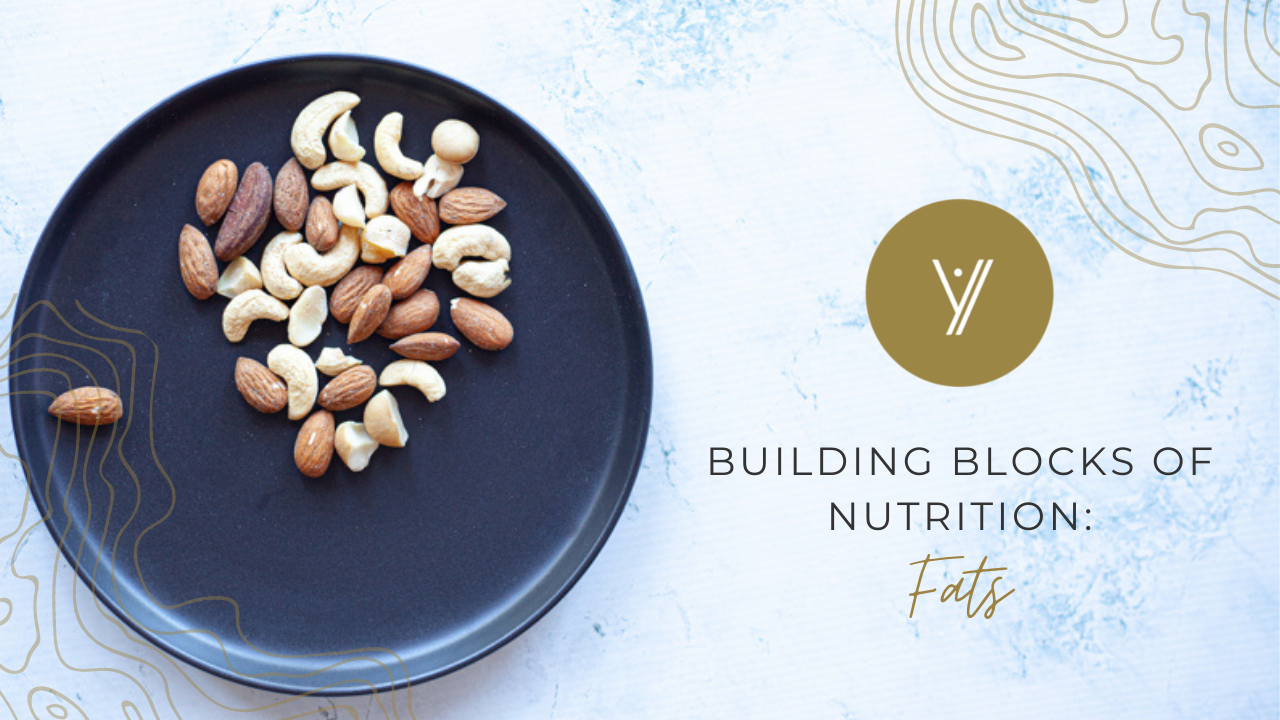
The truth about Fats, that could change your life
Fat seems to be the Buzz word these days, is it Good or Bad? What fats to eat, what fats to stay away from. Knowledge is power. Understanding Saturated, Unsaturated and Trans fats allows you to make better food choices and stay healthy. The truth is there are good fats and there are bad fats. We need good fats as they are necessary for good health and wellbeing. Let’s look at the truth about fats.
Good Fats
- Make hormones
- Protect your organs and reduce inflammation.
- Make us feel full, as they take longer to digest.
- Suppresses the appetite and signals us to stop eating.
- Supply fatty acids that are essential for numerous chemical processes.
- Help the formation and function of membranes.
- Transport molecules into and out of cells.
- Are essential for brain function
- Fats transport and absorb the fat-soluble vitamins A, D, E and K, A
Then there are Bad fats (Trans fats) which you don’t want to be eating, EVER.
Here is a breakdo...
Building Blocks of Nutrition: Carbohydrates

A hot topic ….. are they bad, are they good. I have come full circle on this one. I cut out ALL carbs, to overdoing the carbs, to finding a healthy balance. I spent hours on this topic, wading through the articles and research papers about carbohydrates trying to understand them better. What did I find? Every person’s body is different and will require different carbohydrate intake. It turns out that high or low carb intake is less important than the type of carbohydrate you eat.
The Function of Carbohydrates
- Carbohydrates provide the body with glucose, which is converted into energy and used to support bodily functions and physical activity.
- Carbohydrates provide fuel for the central nervous system and energy to working muscles.
- They prevent protein from being used as an energy source and enable fat metabolism.
- Carbohydrates are important for brain function.
Carbohydrates are split into two categories
Complex carbohydrates
These consist of long chains of sugar molecules (...
Building Blocks of Nutrition: Proteins
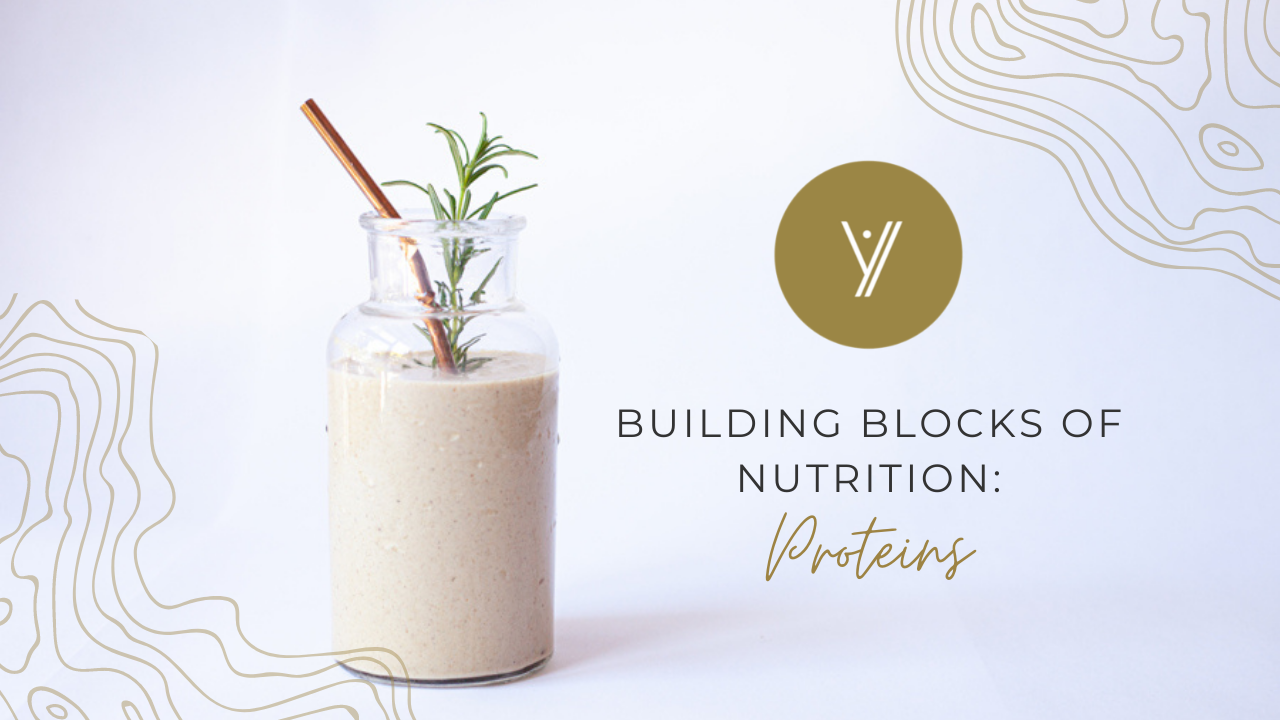
Proteins are a fundamental building block of many of the cells in our body. Muscles, hair, skin and connective tissue are mainly made up of proteins. Many important things like enzymes, hormones, neurotransmitters, and even DNA are partially made of protein. I think you are getting the gist, proteins are very, very important for us.
Some functions of proteins:
- Vital in maintenance, development and repair of body tissue.
- Hair, skin, eyes, muscles and organs are all made from protein.
- Protein is a major source of energy.
- Protein is involved in the creation of some hormones.
- Enzymes are proteins that increase the rate of chemical reactions in the body.
- Protein is a major element in transportation of certain molecules.
- Haemoglobin is a protein that transports oxygen throughout the body.
- Protein is also sometimes used to store certain molecules.
- Protein forms antibodies that help prevent infection, illness and disease.
What are Proteins made of?
Proteins are made up of...
Building Blocks of Nutrition: Micronutrients
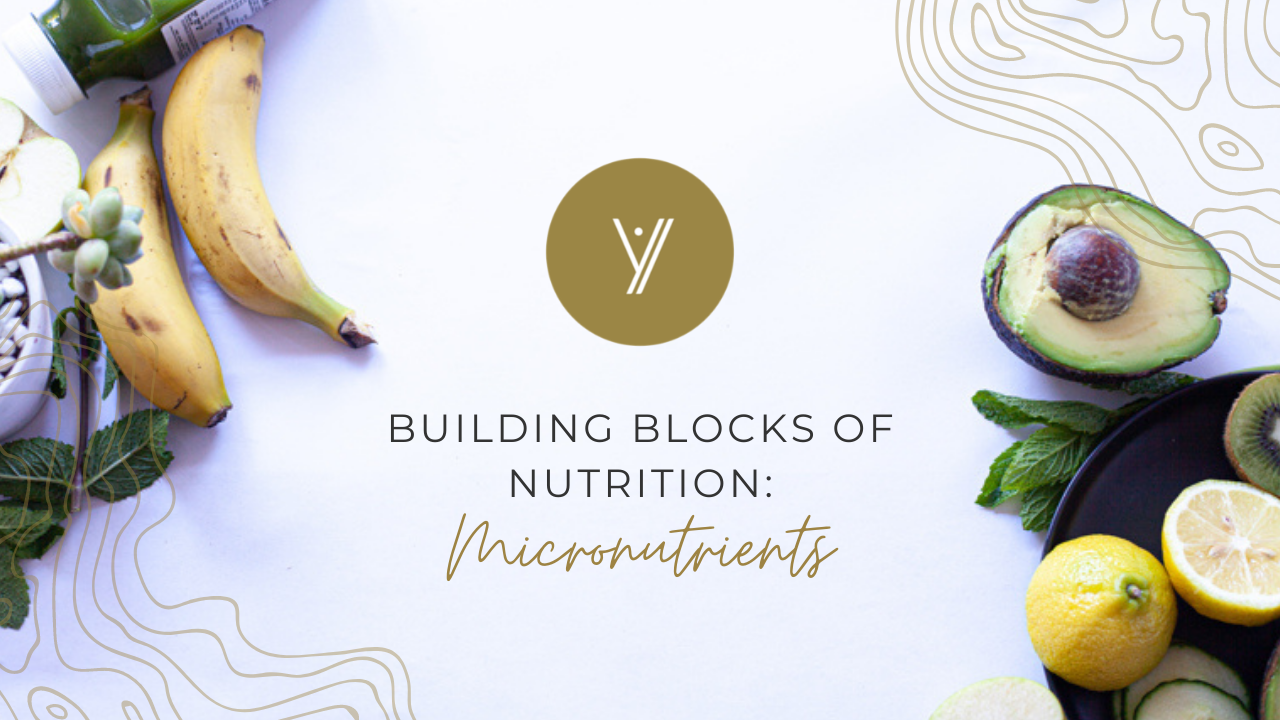
According to the Webster dictionary, a micronutrient is a chemical element or substance that is essential in minute amounts to the growth and health of a living organism.
Micronutrients (like vitamins, minerals and antioxidants) are different from macronutrients (like carbohydrates, protein and fat) because they are only necessary in very tiny amounts. Even with these tiny amounts, sometimes less than 1/1000thof a gram, micronutrients are vital to the proper functioning of all of our body’s systems.
Some functions of micronutrients:
- synthesizing DNA
- facilitating growth
- producing digestive enzymes
- helping keep a strong metabolism
- breaking down carbs, fats and proteins into usable energy
- aiding in bone mineralization
- helping with hormone production
- allowing cells to rejuvenate
- slowing oxidation damage or signs of aging caused by free radicals
- allowing muscles to move and helping with tissue repair
- protecting the brain
- Every system within the body depends on combinati ...
